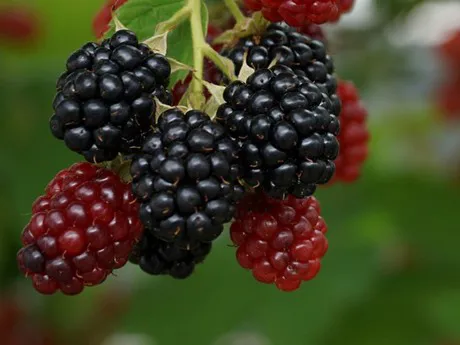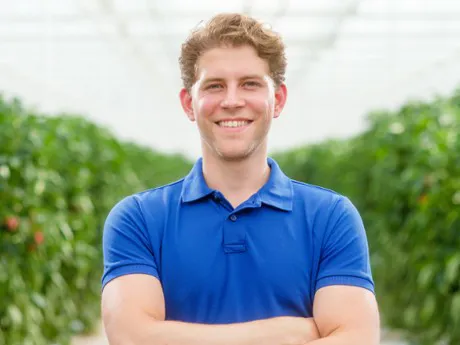Both the horticultural sector and individual growers face great challenges in the coming years. GreenTech asked a few young entrepreneurs about the opportunities and threats they think their company has to deal with. In this article Wouter van den Bosch of Kwekerij Van den Bosch explains his choice for product diversification.

Three years ago, Wouter van den Bosch (27) joined the sweet pepper nursery of his parents in Bleiswijk, the Netherlands. He deliberately waited to join the company until the moment he could actually add value to the operation. The ambition to grow other crops, besides sweet peppers, offered the opportunity he was looking for. ‘We are an old company, so in the past few years we seriously considered our future options’, says Wouter. ‘Scaling-up in greenhouse horticulture continues, also in sweet pepper cultivation in due course. We won’t make it with our five hectares of sweet peppers. But investing in expansion is too expensive when we consider the expected return. That is why we decided to increase our assortment in order to secure our future.’

Wouter belongs to a new generation of entrepreneurs. Even as a child he already knew that his future would be in horticulture. But that he - now - at a relatively young age, would be taking such crucial choices with regards to the family business, he couldn’t have imagined. Nevertheless, because of his studies in Agricultural Business Administration, his Masters in Strategic Management and his experience as a crop advisor, he does have the necessary experience to take these steps. He regards the choice to diversify as a nice and exciting challenge. ‘You do have to be able to get it all organized, but it’s quite a difference if you focus on only one crop or on several.’ One of these new crops is algae. ‘We think that the production of algae is very promising because of its high concentration of Astaxanthine. That is a strong anti-oxidant which is often used in food supplements,’ says Wouter. He expects that the demand for such products will increase in the next few years. ‘However, when producing this kind of crop you enter a new world and will have to deal with new regulations which, at this moment, also come with many limitations.’ Wouter continues: ‘We will definitely have to invest a lot of time and energy in finding customers, optimizing production and building a network.’ To reach these goals, the company works together with large firms within, but also beyond the horticultural industry. A trend that is noticeable at other companies as well. ‘By working together with other horticultural companies, but also by developing crossovers with other sectors, knowledge and experiences can be exchanged. In this way, like-minded entrepreneurs or entrepreneurs with different backgrounds can strengthen each other. Not everyone needs to reinvent the wheel and results are achieved much faster. If we find the right partners at the right time, you need to grab such a unique chance with both hands, even if you’re giving up part of your own company identity. If, in the longer term, the company improves by such cooperation and its continuity will be guaranteed, you should not be afraid to join forces.’
Exploring internationalization
In addition to the production of algae, the company also started to grow blackberries, a crop that is rarely produced in the Netherlands. Wouter expects that by finding the right retail partner, the company can obtain a significant market share. And although expansion of sweet pepper production is certainly not a goal in the Netherlands, Kwekerij Van den Bosch does explore the opportunities for expansion of sweet pepper production abroad. The European market is nowadays rather saturated, but the North American market offers opportunities. Wouter therefore certainly has an interest in setting up a production location in the United States. ‘We do would like to cooperate with local partners and we’re now exploring the possibilities. In addition to diversification, our strategic choice, internationalization is definitely another great challenge.’
For more information: GreenTech
GreenTech
www.greentech.nl
